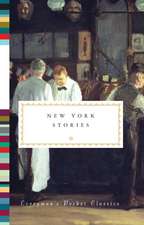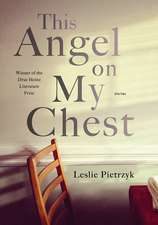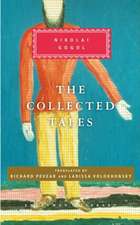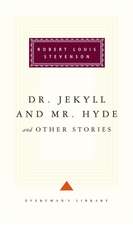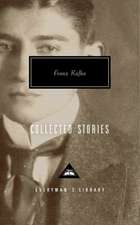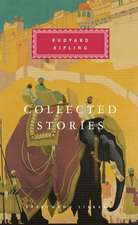Love Stories
Editat de Diana Secker Tesdellen Limba Engleză Hardback – 31 dec 2008
Here are nineteen stories from a rich array of writers, and here is every kind of romantic entanglement: from the raw, erotic passion of D. H. Lawrence and Colette to the wickedly cynical comedy of Dorothy Parker and Roald Dahl, from the yearnings of unrequited romantic illusions in F. Scott Fitzgerald’s “Winter Dreams” to the agonizing madness of jealousy in Vladimir Nabokov’s “That in Aleppo Once . . .” The objects of passion in these stories range from a glamorous silent-movie starlet in Elizabeth Bowen’s haunting “Dead Mabelle” to an emotionally opaque heart surgeon in Margaret Atwood’s “Bluebeard’s Egg.” Jhumpa Lahiri plumbs the depths of despair between a husband and wife separated by tragedy, while Lorrie Moore movingly portrays a husband and wife for whom tragedy becomes a bond. Katherine Mansfield, Tobias Wolff, and William Trevor explore the intricacies of long-term relationships, while Guy de Maupassant, Italo Calvino, and T. C. Boyle portray the initial, elemental force of love.
A collection as alluring, moving, and intoxicating as its timeless theme.
| Toate formatele și edițiile | Preț | Express |
|---|---|---|
| Hardback (2) | 81.53 lei 25-31 zile | +31.53 lei 6-12 zile |
| EVERYMAN – 5 feb 2009 | 81.53 lei 25-31 zile | +31.53 lei 6-12 zile |
| Everyman's Library – 31 dec 2008 | 137.14 lei 22-36 zile |
Preț: 137.14 lei
Nou
Puncte Express: 206
Preț estimativ în valută:
26.25€ • 28.52$ • 22.06£
26.25€ • 28.52$ • 22.06£
Carte disponibilă
Livrare economică 31 martie-14 aprilie
Preluare comenzi: 021 569.72.76
Specificații
ISBN-13: 9780307270870
ISBN-10: 0307270874
Pagini: 400
Dimensiuni: 124 x 185 x 30 mm
Greutate: 0.41 kg
Editura: Everyman's Library
ISBN-10: 0307270874
Pagini: 400
Dimensiuni: 124 x 185 x 30 mm
Greutate: 0.41 kg
Editura: Everyman's Library
Extras
GUY DE MAUPASSANT
CLAIR DE LUNE
Abbe´ Marignan's martial name suited him well. He was a tall, thin priest, fanatic, excitable, yet upright. All his beliefs were fixed, never varying.He believed sincerely that he knew his God, understoodHis plans, desires and intentions.
When he walked with long strides along the garden walk of his little country parsonage, he would sometimes ask himself the question: 'Why has God done this?' And he would dwell on this continually, putting himself in the place of God, and he almost invariably found an answer. He would never have cried out in an outburst of pious humility: 'Thy ways, O Lord, are past finding out.'
He said to himself: 'I am the servant of God; it is right for me to know the reason of His deeds, or to guess it if I do not know it.'
Everything in nature seemed to him to have been created in accordance with an admirable and absolute logic. The 'whys' and 'becauses' always balanced. Dawn was given to make our awakening pleasant, the days to ripen the harvest, the rains to moisten it, the evenings for preparation for slumber, and the dark nights for sleep.
The four seasons corresponded perfectly to the needs of agriculture, and no suspicion had ever come to the priest of the fact that nature has no intentions; that, on the contrary, everything which exists must conform to the hard demands of seasons, climates and matter.
But he hated woman - hated her unconsciously, and despised her by instinct. He often repeated the words of Christ: 'Woman, what have I to do with thee?' and he would add: 'It seems as though God, Himself, were dissatisfied with this work of His.' She was the tempter who led the first man astray, and who since then had ever been busy with her work of damnation, the feeble creature, dangerous and mysteriously affecting one. And even more than their sinful bodies, he hated their loving hearts.
He had often felt their tenderness directed towards himself, and though he knew that he was invulnerable, he grew angry at this need of love that is always vibrating in them.
According to his belief, God had created woman for the sole purpose of tempting and testing man. One must not approach her without defensive precautions and fear of possible snares. She was, indeed, just like a snare, with her lips open and her arms stretched out to man.
He had no indulgence except for nuns, whom their vows had rendered inoffensive; but he was stern with them, nevertheless, because he felt that at the bottom of their fettered and humble hearts the everlasting tenderness was burning brightly - that tenderness which was shown even to him, a priest.
He felt this cursed tenderness, even in their docility, in the low tones of their voices when speaking to him, in their lowered eyes, and in their resigned tears when he reproved them roughly. And he would shake his cassock on leaving the convent doors, and walk off, lengthening his stride as though flying from danger.
He had a niece who lived with her mother in a little house near him.He was bent upon making a sister of charity of her.
She was a pretty, brainless madcap. When the abbe´ preached she laughed, and when he was angry with her she would give him a hug, drawing him to her heart, while he sought unconsciously to release himself from this embrace which nevertheless filled him with a sweet pleasure, giving him the sensation of paternity which slumbers in every man.
Often, when walking by her side, along the country road, he would speak to her of God, of his God. She never listened to him, but looked about her at the sky, the grass and flowers, and one could see the joy of life sparkling in her eyes. Sometimes she would dart forward to catch some flying creature, crying out as she brought it back: 'Look, uncle, how pretty it is! I want to hug it!' And this desire to 'hug' flies or lilac blossoms disquieted, angered, and roused the priest, who saw, even in this, the ineradicable tenderness that is always budding in women's hearts.
Then there came a day when the sexton's wife, who kept house for Abbe´ Marignan, told him, with caution, that his niece had a lover.
Almost suffocated by the fearful emotion this news roused in him, he stood there, his face covered with soap, for he was in the act of shaving.
When he had sufficiently recovered to think and speak he cried: 'It is not true; you lie, Mélanie!'
But the peasant woman put her hand on her heart, saying:'May our Lord judge me if I lie, Monsieur le Cure´! I tell you, she goes there every night when your sister has gone to bed. They meet by the river side; you have only to go there and see, between ten o'clock and midnight.'
He ceased scraping his chin, and began to walk up and down impetuously, as he always did when he was in deep thought. When he began shaving again he cut himself three times from his nose to his ear.
All day long he was silent, full of anger and indignation. To his priestly hatred of this invincible love was added the exasperation of her spiritual father, of her guardian and pastor, deceived and tricked by a child, and the selfish emotion shown by parents when their daughter announces that she has chosen a husband without them, and in spite of them.
After dinner he tried to read a little, but could not, growing more and more angry. When ten o'clock struck he seized his cane, a formidable oak stick, which he was accustomed to carry in his nocturnal walks when visiting the sick. And he smiled at the enormous club which he twirled in a threatening manner in his strong, country fist. Then he raised it suddenly and, gritting his teeth, brought it down on a chair, the broken back of which fell over on the floor.
He opened the door to go out, but stopped on the sill, surprised by the splendid moonlight, of such brilliance as is seldom seen.
And, as he was gifted with an emotional nature, one such as had all those poetic dreamers, the Fathers of the Church, he felt suddenly distracted and moved by all the grand and serene beauty of this pale night.
In his little garden, all bathed in soft light, his fruit trees in a row cast on the ground the shadow of their slender branches, scarcely in full leaf, while the giant honeysuckle, clinging to the wall of his house, exhaled a delicious sweetness, filling the warm moonlit atmosphere with a kind of perfumed soul.
He began to take long breaths, drinking in the air as drunkards drink wine, and he walked along slowly, delighted, marvelling, almost forgetting his niece.
As soon as he was outside the garden, he stopped to gaze upon the plain all flooded with the caressing light, bathed in that tender, languishing charm of serene nights. At each moment was heard the short, metallic note of the cricket, and distant nightingales shook out their scattered notes - their light, vibrant music that sets one dreaming, without thinking, a music made for kisses, for the seduction of moonlight.
The abbe´ walked on again, his heart failing, though he knew not why. He seemed weakened, suddenly exhausted; he wanted to sit down, to rest there, to think, to admire God in His works.
Down yonder, following the undulations of the little river, a great line of poplars wound in and out. A fine mist, a white haze through which the moonbeams passed, silvering it and making it gleam, hung around and above the mountains, covering all the tortuous course of the water with a kind of light and transparent cotton.
The priest stopped once again, his soul filled with a growing and irresistible tenderness.
And a doubt, a vague feeling of disquiet came over him; he was asking one of those questions that he sometimes put to himself.
'Why did God make this? Since the night is destined for sleep, unconsciousness, repose, forgetfulness of everything, why make it more charming than day, softer than dawn or evening? And why does this seductive planet, more poetic than the sun, that seems destined, so discreet is it, to illuminate things too delicate and mysterious for the light of day, make the darkness so transparent?
'Why does not the greatest of feathered songsters sleep like the others? Why does it pour forth its voice in the mysterious night?
'Why this half-veil cast over the world? Why these tremblings of the heart, this emotion of the spirit, this enervation of the body? Why this display of enchantments that human beings do not see, since they are lying in their beds? For whom is destined this sublime spectacle, this abundance of poetry cast from heaven to earth?'
And the abbe´ could not understand.
But see, out there, on the edge of the meadow, under the arch of trees bathed in a shining mist, two figures are walking side by side.
The man was the taller, and held his arm about his sweetheart's neck and kissed her brow every little while. They imparted life, all at once, to the placid landscape in which they were framed as by a heavenly hand. The two seemed but a single being, the being for whomwas destined this calm and silent night, and they came towards the priest as a living answer, the response his Master sent to his questionings.
He stood still, his heart beating, all upset; and it seemed to him that he saw before him some biblical scene, like the love of Ruth and Boaz, the accomplishment of the will of the Lord, in some of those glorious stories of which the sacred books tell. The verses of the Song of Songs began to ring in his ears, the appeal of passion, all the poetry of this poem replete with tenderness.
And he said unto himself: 'Perhaps God has made such nights as these to idealize the love of men.'
He shrank back from the two who still advanced with arms intertwined. Yet it was his niece. But he asked himself now if he would not be disobeying God. And does not God permit love, since He surrounds it with such visible splendour?
And he went back musing, almost ashamed, as if he had intruded into a temple where he had no right to enter.
CLAIR DE LUNE
Abbe´ Marignan's martial name suited him well. He was a tall, thin priest, fanatic, excitable, yet upright. All his beliefs were fixed, never varying.He believed sincerely that he knew his God, understoodHis plans, desires and intentions.
When he walked with long strides along the garden walk of his little country parsonage, he would sometimes ask himself the question: 'Why has God done this?' And he would dwell on this continually, putting himself in the place of God, and he almost invariably found an answer. He would never have cried out in an outburst of pious humility: 'Thy ways, O Lord, are past finding out.'
He said to himself: 'I am the servant of God; it is right for me to know the reason of His deeds, or to guess it if I do not know it.'
Everything in nature seemed to him to have been created in accordance with an admirable and absolute logic. The 'whys' and 'becauses' always balanced. Dawn was given to make our awakening pleasant, the days to ripen the harvest, the rains to moisten it, the evenings for preparation for slumber, and the dark nights for sleep.
The four seasons corresponded perfectly to the needs of agriculture, and no suspicion had ever come to the priest of the fact that nature has no intentions; that, on the contrary, everything which exists must conform to the hard demands of seasons, climates and matter.
But he hated woman - hated her unconsciously, and despised her by instinct. He often repeated the words of Christ: 'Woman, what have I to do with thee?' and he would add: 'It seems as though God, Himself, were dissatisfied with this work of His.' She was the tempter who led the first man astray, and who since then had ever been busy with her work of damnation, the feeble creature, dangerous and mysteriously affecting one. And even more than their sinful bodies, he hated their loving hearts.
He had often felt their tenderness directed towards himself, and though he knew that he was invulnerable, he grew angry at this need of love that is always vibrating in them.
According to his belief, God had created woman for the sole purpose of tempting and testing man. One must not approach her without defensive precautions and fear of possible snares. She was, indeed, just like a snare, with her lips open and her arms stretched out to man.
He had no indulgence except for nuns, whom their vows had rendered inoffensive; but he was stern with them, nevertheless, because he felt that at the bottom of their fettered and humble hearts the everlasting tenderness was burning brightly - that tenderness which was shown even to him, a priest.
He felt this cursed tenderness, even in their docility, in the low tones of their voices when speaking to him, in their lowered eyes, and in their resigned tears when he reproved them roughly. And he would shake his cassock on leaving the convent doors, and walk off, lengthening his stride as though flying from danger.
He had a niece who lived with her mother in a little house near him.He was bent upon making a sister of charity of her.
She was a pretty, brainless madcap. When the abbe´ preached she laughed, and when he was angry with her she would give him a hug, drawing him to her heart, while he sought unconsciously to release himself from this embrace which nevertheless filled him with a sweet pleasure, giving him the sensation of paternity which slumbers in every man.
Often, when walking by her side, along the country road, he would speak to her of God, of his God. She never listened to him, but looked about her at the sky, the grass and flowers, and one could see the joy of life sparkling in her eyes. Sometimes she would dart forward to catch some flying creature, crying out as she brought it back: 'Look, uncle, how pretty it is! I want to hug it!' And this desire to 'hug' flies or lilac blossoms disquieted, angered, and roused the priest, who saw, even in this, the ineradicable tenderness that is always budding in women's hearts.
Then there came a day when the sexton's wife, who kept house for Abbe´ Marignan, told him, with caution, that his niece had a lover.
Almost suffocated by the fearful emotion this news roused in him, he stood there, his face covered with soap, for he was in the act of shaving.
When he had sufficiently recovered to think and speak he cried: 'It is not true; you lie, Mélanie!'
But the peasant woman put her hand on her heart, saying:'May our Lord judge me if I lie, Monsieur le Cure´! I tell you, she goes there every night when your sister has gone to bed. They meet by the river side; you have only to go there and see, between ten o'clock and midnight.'
He ceased scraping his chin, and began to walk up and down impetuously, as he always did when he was in deep thought. When he began shaving again he cut himself three times from his nose to his ear.
All day long he was silent, full of anger and indignation. To his priestly hatred of this invincible love was added the exasperation of her spiritual father, of her guardian and pastor, deceived and tricked by a child, and the selfish emotion shown by parents when their daughter announces that she has chosen a husband without them, and in spite of them.
After dinner he tried to read a little, but could not, growing more and more angry. When ten o'clock struck he seized his cane, a formidable oak stick, which he was accustomed to carry in his nocturnal walks when visiting the sick. And he smiled at the enormous club which he twirled in a threatening manner in his strong, country fist. Then he raised it suddenly and, gritting his teeth, brought it down on a chair, the broken back of which fell over on the floor.
He opened the door to go out, but stopped on the sill, surprised by the splendid moonlight, of such brilliance as is seldom seen.
And, as he was gifted with an emotional nature, one such as had all those poetic dreamers, the Fathers of the Church, he felt suddenly distracted and moved by all the grand and serene beauty of this pale night.
In his little garden, all bathed in soft light, his fruit trees in a row cast on the ground the shadow of their slender branches, scarcely in full leaf, while the giant honeysuckle, clinging to the wall of his house, exhaled a delicious sweetness, filling the warm moonlit atmosphere with a kind of perfumed soul.
He began to take long breaths, drinking in the air as drunkards drink wine, and he walked along slowly, delighted, marvelling, almost forgetting his niece.
As soon as he was outside the garden, he stopped to gaze upon the plain all flooded with the caressing light, bathed in that tender, languishing charm of serene nights. At each moment was heard the short, metallic note of the cricket, and distant nightingales shook out their scattered notes - their light, vibrant music that sets one dreaming, without thinking, a music made for kisses, for the seduction of moonlight.
The abbe´ walked on again, his heart failing, though he knew not why. He seemed weakened, suddenly exhausted; he wanted to sit down, to rest there, to think, to admire God in His works.
Down yonder, following the undulations of the little river, a great line of poplars wound in and out. A fine mist, a white haze through which the moonbeams passed, silvering it and making it gleam, hung around and above the mountains, covering all the tortuous course of the water with a kind of light and transparent cotton.
The priest stopped once again, his soul filled with a growing and irresistible tenderness.
And a doubt, a vague feeling of disquiet came over him; he was asking one of those questions that he sometimes put to himself.
'Why did God make this? Since the night is destined for sleep, unconsciousness, repose, forgetfulness of everything, why make it more charming than day, softer than dawn or evening? And why does this seductive planet, more poetic than the sun, that seems destined, so discreet is it, to illuminate things too delicate and mysterious for the light of day, make the darkness so transparent?
'Why does not the greatest of feathered songsters sleep like the others? Why does it pour forth its voice in the mysterious night?
'Why this half-veil cast over the world? Why these tremblings of the heart, this emotion of the spirit, this enervation of the body? Why this display of enchantments that human beings do not see, since they are lying in their beds? For whom is destined this sublime spectacle, this abundance of poetry cast from heaven to earth?'
And the abbe´ could not understand.
But see, out there, on the edge of the meadow, under the arch of trees bathed in a shining mist, two figures are walking side by side.
The man was the taller, and held his arm about his sweetheart's neck and kissed her brow every little while. They imparted life, all at once, to the placid landscape in which they were framed as by a heavenly hand. The two seemed but a single being, the being for whomwas destined this calm and silent night, and they came towards the priest as a living answer, the response his Master sent to his questionings.
He stood still, his heart beating, all upset; and it seemed to him that he saw before him some biblical scene, like the love of Ruth and Boaz, the accomplishment of the will of the Lord, in some of those glorious stories of which the sacred books tell. The verses of the Song of Songs began to ring in his ears, the appeal of passion, all the poetry of this poem replete with tenderness.
And he said unto himself: 'Perhaps God has made such nights as these to idealize the love of men.'
He shrank back from the two who still advanced with arms intertwined. Yet it was his niece. But he asked himself now if he would not be disobeying God. And does not God permit love, since He surrounds it with such visible splendour?
And he went back musing, almost ashamed, as if he had intruded into a temple where he had no right to enter.
Recenzii
“Love Stories (Everyman's Library) encompasses everything from the unabashedly erotic (Colette) to the sardonically doomed (Dorothy Parker). In literature, as in love, there's something for everyone." ߝVogue
“Love in its vagrant and contradictory forms animate these classic stories from Colette, de Maupassant, D. H. Lawrence, F. Scott Fitzgerald, and Dorothy Parker, and the strong contemporary tales by Tobias Wolff, Jhumpa Lahiri, Lorrie Moore, and Ali Smith. . . . Tesdell has an especially good eye for a classic writer’s most resonant story.” ߝCleveland Plain Dealer
“This is a book about love in which none of the stories lapses into sentimentality. . . . Wonderfully amusing . . . fabulously funny . . . I read this book with a mounting sense of marvel. It is a triumph of the anthologist’s skill: moving, artful, unceasingly entertaining. . . . This is a book to cherish, to give to your lover, and to escape joyfully into at the first sign of flying saucers.” ߝThe Spectator
“A more cynical celebration than Valentine’s Day, which exists chiefly to sell greeting cards and get absent-minded men in trouble, is hard to imagine. Fortunately, Diana Secker Tesdell and Everyman’s Pocket Classics offer an antidote to this coarsening of human emotion. Love Stories, a collection of tales by notable authors past and present, show yet again the capacity of literature—in the form of clear-sighted sensibility and the application of mildly elevated language—to renew the weariest heart. . . . The book as a whole … is a matter of deep reading pleasure, refracting the awful beauty and power of love in varied aspects, times, cultures.” ߝSouth Florida Sun-Sentinel
“A marvelous Valentine’s Day gift for literary lovers.” ߝSt. Louis Post-Dispatch
“Love in its vagrant and contradictory forms animate these classic stories from Colette, de Maupassant, D. H. Lawrence, F. Scott Fitzgerald, and Dorothy Parker, and the strong contemporary tales by Tobias Wolff, Jhumpa Lahiri, Lorrie Moore, and Ali Smith. . . . Tesdell has an especially good eye for a classic writer’s most resonant story.” ߝCleveland Plain Dealer
“This is a book about love in which none of the stories lapses into sentimentality. . . . Wonderfully amusing . . . fabulously funny . . . I read this book with a mounting sense of marvel. It is a triumph of the anthologist’s skill: moving, artful, unceasingly entertaining. . . . This is a book to cherish, to give to your lover, and to escape joyfully into at the first sign of flying saucers.” ߝThe Spectator
“A more cynical celebration than Valentine’s Day, which exists chiefly to sell greeting cards and get absent-minded men in trouble, is hard to imagine. Fortunately, Diana Secker Tesdell and Everyman’s Pocket Classics offer an antidote to this coarsening of human emotion. Love Stories, a collection of tales by notable authors past and present, show yet again the capacity of literature—in the form of clear-sighted sensibility and the application of mildly elevated language—to renew the weariest heart. . . . The book as a whole … is a matter of deep reading pleasure, refracting the awful beauty and power of love in varied aspects, times, cultures.” ߝSouth Florida Sun-Sentinel
“A marvelous Valentine’s Day gift for literary lovers.” ߝSt. Louis Post-Dispatch
Cuprins
Guy de Maupassant, Clair de Lune
Italo Calvino, Blood, Sea
T. Coraghessan Boyle, Swept Away
Elizabeth Bowen, Dead Mabelle
F. Scott Fitzgerald, Winter Dreams
Colette, Armande
D. H. Lawrence, The Horse Dealer’s Daughter
Roald Dahl, Mr Botibol
Gabriel García Márquez, The Woman Who Came at Six O’clock
Yasunari Kawabata, Immortality
Dorothy Parker, Here We Are
Katherine Mansfield, The Stranger
Tobias Wolff, Lady’s Dream
Margaret Atwood, Bluebeard’s Egg
Vladimir Nabokov, ‘That In Aleppo Once . . .’
William Trevor, The Room
Jhumpa Lahiri, A Temporary Matter
Lorrie Moore, Terrific Mother
Ali Smith, May
Acknowledgments
Italo Calvino, Blood, Sea
T. Coraghessan Boyle, Swept Away
Elizabeth Bowen, Dead Mabelle
F. Scott Fitzgerald, Winter Dreams
Colette, Armande
D. H. Lawrence, The Horse Dealer’s Daughter
Roald Dahl, Mr Botibol
Gabriel García Márquez, The Woman Who Came at Six O’clock
Yasunari Kawabata, Immortality
Dorothy Parker, Here We Are
Katherine Mansfield, The Stranger
Tobias Wolff, Lady’s Dream
Margaret Atwood, Bluebeard’s Egg
Vladimir Nabokov, ‘That In Aleppo Once . . .’
William Trevor, The Room
Jhumpa Lahiri, A Temporary Matter
Lorrie Moore, Terrific Mother
Ali Smith, May
Acknowledgments
Notă biografică
Diana Secker Tesdell is the editor of the Everyman’s Pocket Classics anthologies Christmas Stories, Dog Stories, Cat Stories, Horse Stories, New York Stories, Bedtime Stories, Stories of Motherhood, and Stories of the Sea, and of the Everyman's Library Pocket Poet anthology Lullabies and Poems for Children.
Descriere
A new anthology of literary love stories features 19 tales from a rich array of writers. Every kind of romantic entanglement is represented, from the raw, erotic passion of D.H. Lawrence and Colette to the wickedly cynical comedy of Dorothy Parker and Roald Dahl.


